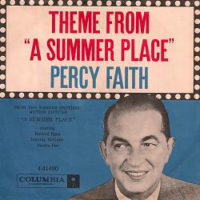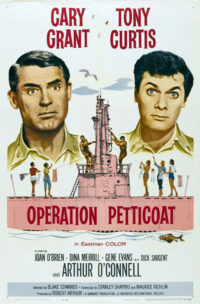Every two years was an election year. Every two years, New York City launched yet another drive to clean the place up. In an article published in the Mattachine Review, Tom Wilson — probably a pseudonym — lamented the closure of Club 316:
Someone said that our most cherished liberty is “the right to be left-handed” to which he should have added: and the right to be “left alone.” This thought comes to mind because of a sad event which took place on the rarest of rare days, February 29th, in that “most libr ral” of towns, Little Old New York. The tragic charade could be called: The Last Night of the 316, or The Death of the First Admendment.
Had you been present at the Club 316 you would have seen a typical picture of what it l means to be a homosexual in Free America in the year 1960, A.D.
Gathered together were, perhaps, a hundred business men, actors, painters, writers, longshoremen, hair-dressers, clerks, waiters, plumbers and other ordinary citizens guilty of no crime — except that of bearing the modern scarlet letter H on their collective breast.
For many months the same men (and women) had gathered in this friendly, fraternal club to seek companionship, solace and kindred spirits. Persecuted and harassed everywhere else, this tavern on New York’s East side served its purpose as an oasis in a desert of prejudice and ridicule. But even this “last resort” was about to be closed thanks to the mad hatchetmen Lee Mortimer and Walter Winchell and their allies: the politicians and professional queer hunters. This was also an election year and, of course, the homo vote was expendable.
All the boys and girls at the 316 knew it was the “last night” and some wore black arm-bands in sincere mourning and as 12 o’clock neared a large basket of lillies, with black ribbons entwined, was placed on the mantle by the bar and everyone paused in their drinking and joined in singing”Auld Lang Syne”; Many an eye was unashamedly wet as hands found each other and a silent toast was drunk to departed liberties in not so gay Manhattan. For the 316 was not the only victim — the axe was felt all over town.
You may feel that the closing of the 316 should not be mentioned in the same breath as the Boston Tea Party or The Fall of the Bastille but — if we let the denial of free assembly to American citizens go unnoticed and without protest then, surely, the end to all freedom is not very far off. All minorities and, indeed, all citizens, should be in the forefront of this fight to preserve the First Amendment to the Constitution. If it is allowed to happen to Homosexuals today it can happen to Jews, Negroes or Democrats tomorrow.
Meanwhile, back at the 316 that odd day that comes once every four years was drawing to a melancholy close. As the hands of the clock crept closer to mid-night an exuberent lad leapt to the bar for an impromptu dance — till an alert management, still wishing to obey the law, called a halt. Now the 316 is really crowded as all the “old gang” is there, plus a few strangers (though tonight none are strangers). Just before 12 everyone buys that “last” drink and a few bottles are broken, perhaps, as a symbolic protest or just to let off steam. Finally the bar is officially closed and, slowly, two-by-two, the crowd starts to leave and the room is not quite so crowded. Still, many wish to linger on, hating t0 admit that this is really the end for an old friend. It is a wake in more ways than one!
At long last all are gone and the 316 closes its doors forevermore. No more Sunday Night buffets and the excellent food this club served the boys, no more jolly gatherings listening to Ethel’s brassy numbers from “Gypsy” or the long-time favorite “Mack the Knife” on the juke-box, no more gay gatherings among gay friends on a “found” week-end. Gone now those little joys of life which helped to make the straight world bearable; gone, too, the happy nights which made the days livable.
Sure, we’ll find another 316, and still another after they close that one.
But somehow it just won’t seem the same.
For others, February 29th comes once in four years. But for us it comes every day of every year.
On the Timeline:
![]() February 29, 1960: Gay Bars Close In New York City Clean-up Drive.
February 29, 1960: Gay Bars Close In New York City Clean-up Drive.
Periscope:
 Headlines for February 29, 1960: Southern Senators launch a filibuster against a civil rights bill. Sen. Richard B. Russell (D-GA) assails “agitators … anxious to start a race riot of terrible proportions.” Supreme Court unanimously upholds the 1957 Civil Rights Act. Nashville police arrest 75 when fights break out during downtown lunch-counter sit-ins. An African-American woman in Montgomery, Alabama, is beaten by a mob of white men armed with bats; police stand by and watch. President Eisenhower completes his state visit with Argentina, flies on to Chile. U.S.Hockey Team upsets the Soviets, 3-2 at the Winter Olympics in Squaw Valley, California. Princess Margaret shows off her ruby and diamond engagement ring given to her by photographer Antony Armstrong-Jones.
Headlines for February 29, 1960: Southern Senators launch a filibuster against a civil rights bill. Sen. Richard B. Russell (D-GA) assails “agitators … anxious to start a race riot of terrible proportions.” Supreme Court unanimously upholds the 1957 Civil Rights Act. Nashville police arrest 75 when fights break out during downtown lunch-counter sit-ins. An African-American woman in Montgomery, Alabama, is beaten by a mob of white men armed with bats; police stand by and watch. President Eisenhower completes his state visit with Argentina, flies on to Chile. U.S.Hockey Team upsets the Soviets, 3-2 at the Winter Olympics in Squaw Valley, California. Princess Margaret shows off her ruby and diamond engagement ring given to her by photographer Antony Armstrong-Jones.
 On the radio: “The Theme From’A Summer Place'” by Percy Faith and His Orchestra, “Handy Man” by Jimmy Jones, “He’ll Have To Go” by Jim Reeves, “Teen Angel” by Mark Dinning, “What In the World’s Come Over You” by Jack Scott, “Beyond the Sea” by Bobby Darin, “Running Bear” by Johnny Preston, “Let It Be Me” by the Everly Brothers, “Baby (You’ve Got What It Takes)” by Dina Washington and Brook Benton, “Wild One” by Bobby Rydell.
On the radio: “The Theme From’A Summer Place'” by Percy Faith and His Orchestra, “Handy Man” by Jimmy Jones, “He’ll Have To Go” by Jim Reeves, “Teen Angel” by Mark Dinning, “What In the World’s Come Over You” by Jack Scott, “Beyond the Sea” by Bobby Darin, “Running Bear” by Johnny Preston, “Let It Be Me” by the Everly Brothers, “Baby (You’ve Got What It Takes)” by Dina Washington and Brook Benton, “Wild One” by Bobby Rydell.

On television: Gunsmoke (CBS), Wagon Train (NBC), Have Gun, Will Travel (CBS), The Andy Griffith Show (CBS), The Real McCoys (ABC), Rawhide (CBS), Candid Camera (CBS), The Price is Right (NBC), The Untouchables (ABC), The Jack Benny Show (CBS), Bonanza (NBC), Dennis the Menace (CBS), The Danny Thomas Show (CBS) The Ed Sullivan Show (CBS), My Three Sons (ABC), Perry Mason (CBS) The Flintstones (ABC), 77 Sunset Strip (ABC).
New York Times best sellers: Fiction: Hawaii by James Michener, Advise and Consent by Allen Drury (Pulitzer Prize winner), Poor No More by Robert Ruark. Non-fiction: Act One: An Autobiography by Moss Hart, Folk Medicine: A Vermont Doctor’s Guide to Good Health by D.C. Jarvis, My Wicked, Wicked Ways by Errol Flynn.
Source:
Tom Wilson. “R.I.P. Club 316.” Mattachine Review 6 no. 4 (April 1960): 4-5.
![[Emphasis Mine]](http://jimburroway.com/wp-content/uploads/2018/01/JuliusSipIn.jpg)